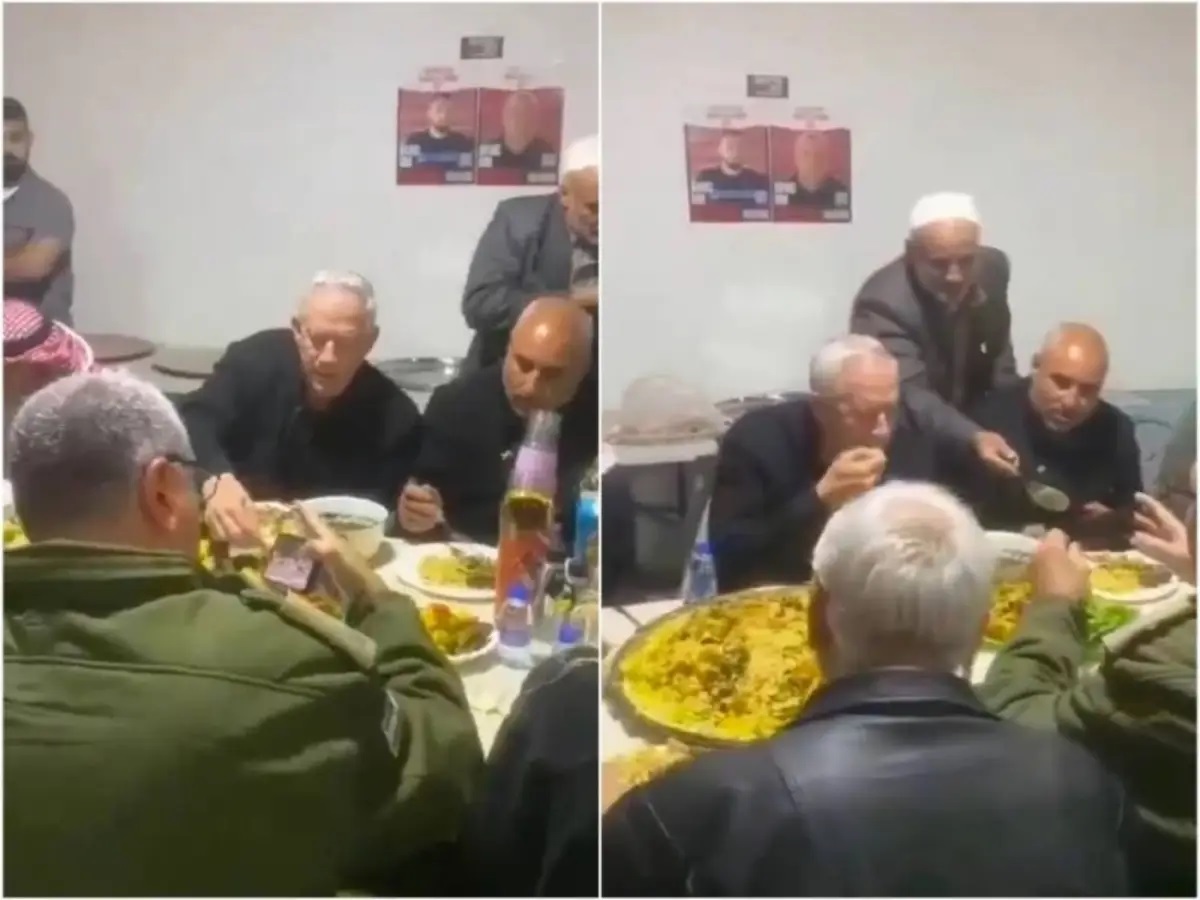Watan-Recurring questions circulate about the “Bedouins of the Negev” and their role in the Gaza war, following significant anger sparked by videos. One of these videos depicted fighters from among them who met their demise while fighting the occupation, while another video showed one of these Bedouins hosting Israeli officials such as government member of the war cabinet, Benny Gantz, and the spokesperson for the Israeli army, Avichay Adraee.
The name “Bedouins of the Negev” is frequently mentioned in conjunction with the killing of several mercenaries supporting the occupation, who have Bedouin origins, at the hands of resistance fighters in Gaza. This comes after scenes of determination from Gantz during Ramadan and the reconnaissance battalion from the Bedouins in the Israeli army. So, who are they?
The Negev is a desert region in southern occupied Palestine, shaped like an inverted triangle, bordered to the east by the Arabah Valley and to the west adjacent to the Sinai Peninsula.
The Negev and Operation Flood of Al-Aqsa
During Operation Flood of Al-Aqsa and after October 7th, with the killing of several Bedouin occupation soldiers, Israel seized the opportunity to promote the notion that the resistance was responsible for their deaths and the reason for their loved ones’ loss. Israel worked to propagate the propaganda that all Bedouins of the Negev were enemies, who Hamas and the Al-Qassam Brigades had infiltrated. According to numbers published by the Israeli army, the number of soldiers and officers from Bedouin backgrounds in its ranks is 1500.
بدو النقب ، يتداول هذا الاسم بكثرة في الأيام الأخيرة مع مقتل عدد من الجنود الارهابيين من اصول بدوية في قطاع غزة ، وعزيمة بن غانتس خلال رمضان ،وأيضاً كتيبة الاستطلاع من البدو في الجيش الارهابي الإسرائيلي، ماذا يعني ذلك ؟؟
نبدأ الحديث بالأرقام ، حسب أرقام نشرها الجيش الاسرائيلي أن… pic.twitter.com/eaSbqkroI7— Tamer | تامر (@tamerqdh) March 21, 2024
However, the rate of desertion among Bedouin soldiers and officers from their service exceeds 30%, despite financial incentives offered to them to join the Israeli occupation forces.
The occupation seeks to isolate the Bedouins from the issue of Gaza by conducting frequent visits, such as those by Benny Gantz or the Prime Minister of the occupation, Benjamin Netanyahu, to incite discord between Arabs and Palestinians and the Bedouins of the Negev.
Occupation soldiers and their families from the Bedouin community are ostracized by the Bedouin society, which does not accept them at all, as confirmed by local sources. Additionally, over the years, Bedouins of the Negev have presented martyrs in their struggle against the Israeli occupation and for Palestine and its freedom.
Israel has long attempted to displace them and destroy Bedouin villages, accusing them, on October 7th, of harboring elements of Palestinian resistance fighters involved in Operation Flood of Al-Aqsa.
Occupation Collaborators Ostracized by the Bedouins of the Negev
Followers of the Bedouins of the Negev condemned one of their families for hosting Gantz, stating that “betrayal and abandonment can be committed by some people, and one can find a Palestinian who supports Israeli leaders, and a non-Palestinian fighting against Israelis.”
The Negev region spans 14,000 square kilometers, with over 300,000 Arab inhabitants, approximately 150,000 of whom are dispersed across 45 villages unrecognized by the occupation. These villages lack access to electricity, water, medical clinics, or infrastructure.
بدو النقب ، يتداول هذا الاسم بكثرة في الأيام الأخيرة مع مقتل عدد من الجنود الارهابيين من اصول بدوية في قطاع غزة ، وعزيمة بن غانتس خلال رمضان ،وأيضاً كتيبة الاستطلاع من البدو في الجيش الارهابي الإسرائيلي، ماذا يعني ذلك ؟؟
نبدأ الحديث بالأرقام ، حسب أرقام نشرها الجيش الاسرائيلي أن… pic.twitter.com/eaSbqkroI7— Tamer | تامر (@tamerqdh) March 21, 2024
The Arabs of ’48, who remained in their lands after the establishment of the usurping entity in 1948, constitute about 21% of the population. The most important cities in the Negev include Beersheba, Rahat, Ar’arat, Tel Sheva, Tel Arad, Kasifah, Hurah, Laqye, Umm Batin, Shaqib al-Salam, Umm Haran, Umm Matan, Al-Qasr, Aqsham, Al-Asam, Beer Hadaj, Wadi al-Naam, and Tarabin al-Sana’.
